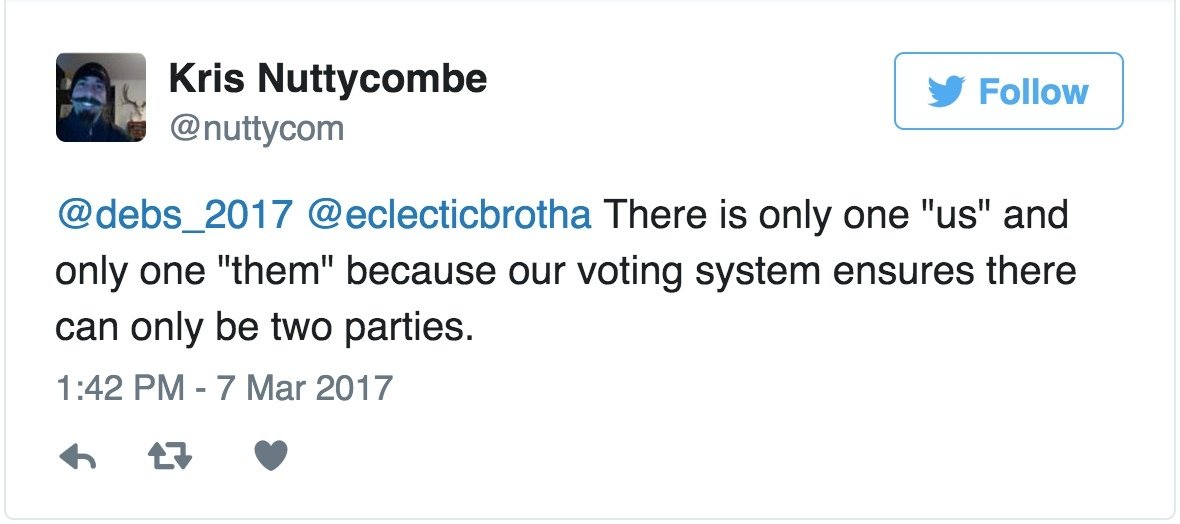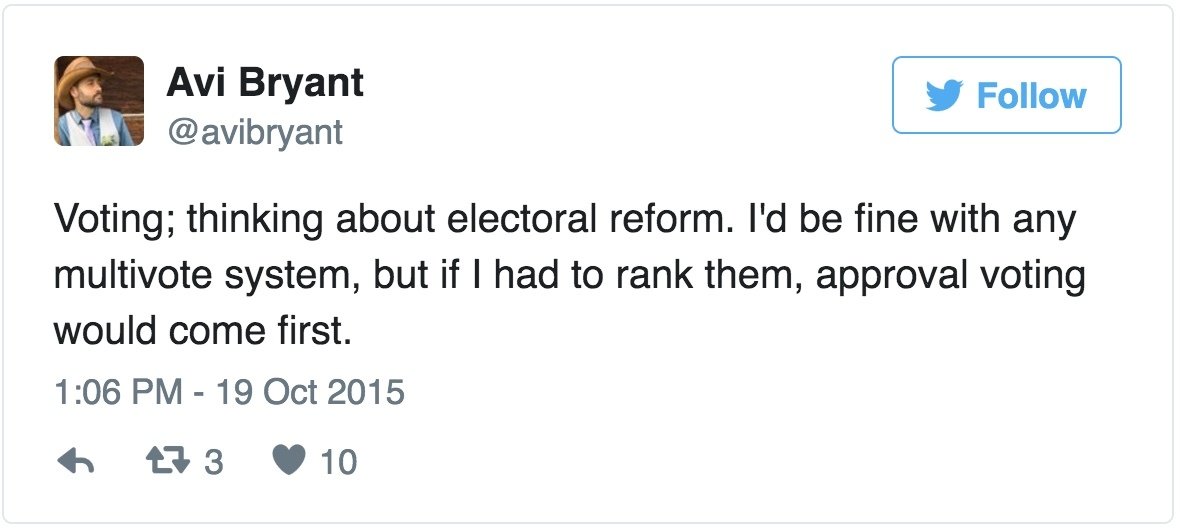Voting Systems
Jean-Rémi Desjardins - Scala Days Chicago 2017
First Past the Post
- US, Canada, UK, India, ...
- 2nd most popular system (British Empire)
- Form of plural voting (most votes wins)
- Ideal for scenarios with two choices
- Terrible for sceanrios with more choices
- "strategic voting"
- "wasted votes"
- Very simple to understand
- Very simple to cast vote

Ranked Voting
- Australia, Hong Kong, Ireland, New Zealand
- Form of majoritarian voting (must have a majority)
- Deals well with scenarios with more than two options
- Variants on how to cast and how to tally the vote (IRV, Borda)
- IRV and STV are only variants in use in goverment
- Arrow's impossibility theorem
- Can elect a Condorcet winner
- Simple enough to understand
- Very simple to cast vote
Arrow's IMpossibility theorem
- if every voter prefers alternative X over alternative Y, then the group prefers X over Y
- If every voter's preference between X and Y remains unchanged, then the group's preference between X and Y will also remain unchanged (even if voters' preferences between other pairs like X and Z, Y and Z, or Z and W change).
- There is no "dictator": no single voter possesses the power to always determine the group's preference.
Range Voting
- Amazon, Yelp, ...
- Deals very well with scenarios with more than two options
- How to deal with "little known" candidates
- Simple to understand except for above bullet
- Simple enough to cast vote

Approval Voting
- American Mathematical Society
- Form of plurality voting (most votes win)
- Special case of Range Voting
- Deals pretty well with scenarios with more than two options
- Very simple to understand
- Casting the vote is even simpler than "first past the post"

Two-round system
- France, Brazil, India, many more
- Most popular presidential election system
- Form of majoratarian voting (must have a majority)
- Better than "First Past The Post"...
- Very similar to some variants of Ranked Voting
- Candidates can "shift" their positions after the first round
- Simple to understand
- Simple enough to cast vote
Proportional Representation
- Most widely used system for legislatures
- Suitable for non "single seat" scenarios
- Can be difficult to understand re-distribution rules
- Largely orthogonal to previous systems
Final Notes
- Is geographic location really the best way to separate constituencies?
- Would profession, age, income be better in the 21st century?
- What about variable sized constituencies?
- What if citizens could vote on any issue?
Voting Systems
By Jean-Rémi Desjardins
Voting Systems
- 691



